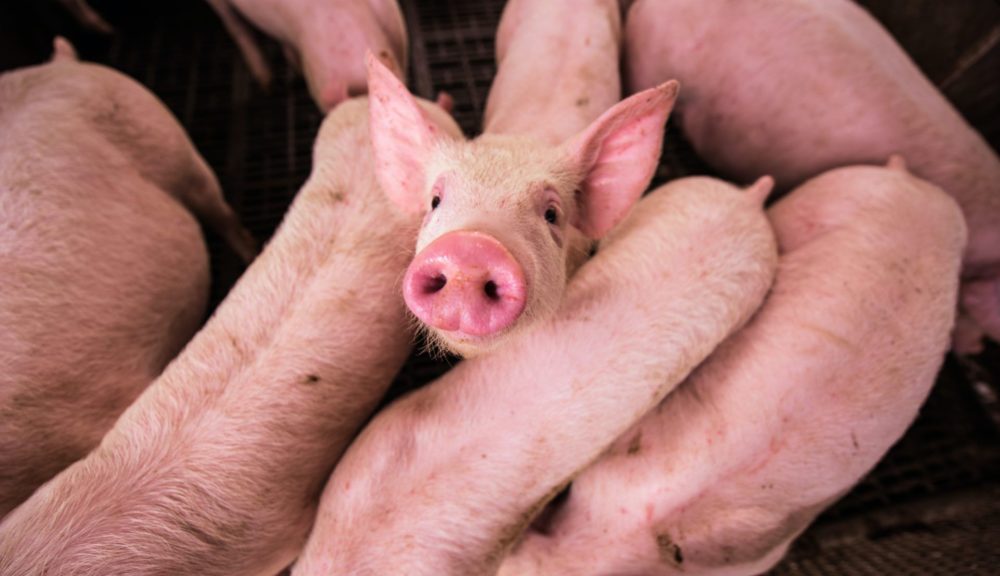In the ongoing discussion around the world’s growing antibiotic resistance problem, animal agriculture and its high use of antibiotics has been one of the primary issues. Meat companies have responded by launching new policies and protocols in an attempt to curb antibiotic use but now sustainability-focused investor network FAIRR is putting the responsibility squarely on the animal health companies.
“None of the 10 largest publicly-listed animal health companies — including giants like Elanco, Phibro, and Zoetis — have a comprehensive policy for tackling antimicrobial resistance in animal ag supply chains,” Jo Raven, senior manager, research and engagement at sustainability-focused investor network FAIRR tells AFN.
“Seventy percent of all global antimicrobial use occurs in animal agriculture, and these are the companies responsible for the manufacture and supply of those treatments, often in large quantities.”
FAIRR today released a new report called Feeding resistance: Antimicrobial stewardship in the animal health industry that delves into how 10 major animal pharmaceutical companies are approaching — or failing to approach — antibiotic resistance in animal agriculture. Describing the animal health sector as “historically opaque,” Raven views the report as a first-of-its-kind attempt to break open the $47 billion industry’s black box for investors.
The report selected 10 animal health companies based on five criteria:
- Whether they are a publicly listed company
- Size of market share
- Exposure to antibiotics
- Manufacturing capacity
- Availability of detailed public disclosure
This narrowed down the research to 10 companies: Dechra, Elanco, Jinhe, Merck Animal Health, Orion, Phibro, Vetoquinol, Virbac, Zoetis. and Zydus Cadila.
The goal of the research is to encourage more discussion between the industry and its stakeholders including institutional investors, policymakers, and society at large.
“We also want to draw attention to the need for more transparency around antibiotic stewardship in meat supply chains, given the knock-on effects for both investors and society-at-large of a lack of responsible practices in this area,” Raven adds. “These companies can play a huge role in stewarding the proper use of antibiotics and managing the growth of AMR (antimicrobial resistance)– now is the time for action.”
Investors’ role in combatting antibiotic resistance
Investors have a critical role to play in the effort, according to Raven, and it involves more than just deploying capital.
“Investors have a huge role to play in facilitating dialogues with these companies — as well as governments and regulators — calling for greater transparency on these issues and urging better marketing and sales practices from these companies in order to reduce the risk of a potential trillion-dollar antimicrobial resistance crisis.”
To that end, FAIRR is launching a collaborative investor engagement with companies in the animal health sector to ask them to improve their antibiotic stewardship. As Covid-19 highlighted many of the global food system’s weaknesses and challenges, stakeholders across the food system are using pandemic pressure to enact meaningful change. FAIRR is no exception.
Tackling animal agriculture’s contribution to antibiotic resistance has remained a top priority for several groups, even in the midst of the pandemic. The G7 recently committed to curbing “the silent pandemic of antimicrobial resistance” by seeking out more market incentives to bring new antimicrobials to market among other efforts. The goal is to accelerate current regulatory pressure as well as investor and consumer attention to further catalyze industry-wide change.
Of course, improving antibiotic use in animal agriculture means new therapies and methods must take their place. Although there is no silver bullet for replacing antibiotics, there is a growing list of options like vaccines, probiotics, in-feed enzymes, and diagnostic tools, Raven notes.
“Some animal health companies already recognize the commercial opportunities and are investing to support portfolio expansion in this area. FAIRR’s research shows five of the 10 companies analyzed already have a ‘high exposure’ to alternative treatment options.”
Startups working on the challenge
A few startups in the agrifoodtech sector are already hoping to help animal agriculture address its antibiotic problem through innovation. Bill Niman launched a new startup last year, FoodID, to bring greater transparency and integrity to label claims on meat packages regarding antibiotic use while Canada’s NovoBind is developing a precision biologics platform to protect livestock against pathogenic bacteria, viruses, and parasites.
Acceligen hopes to curb antibiotic use in pigs through gene editing while ALSS is working on improving vaccinations in poultry to reduce antibiotic use down the road.
“To truly ‘build back better’ from Covid, we need to safeguard vital human treatments and we need reform across the animal protein value chain. Our research points to the opportunities for the animal health sector to make responsible antibiotic stewardship an industry standard and protect livelihoods and lives from the crisis of antimicrobial resistance.”





